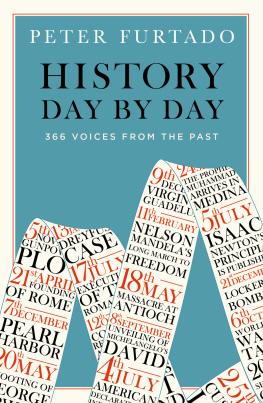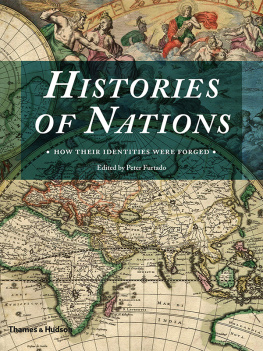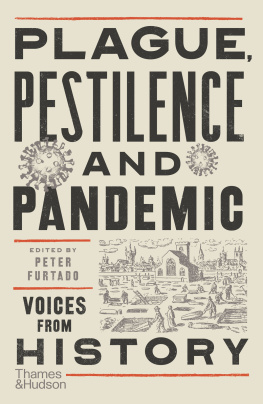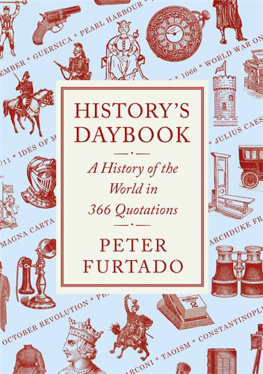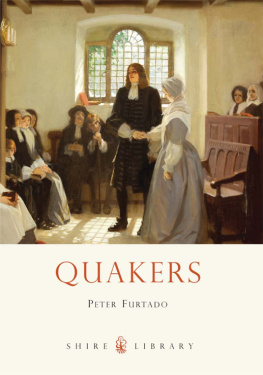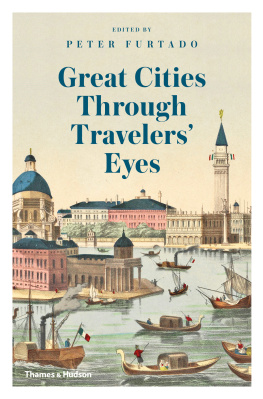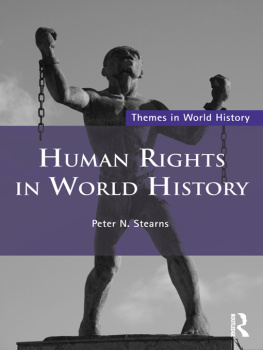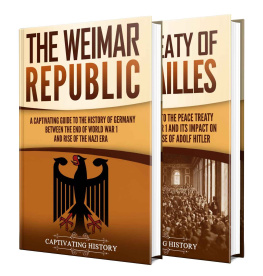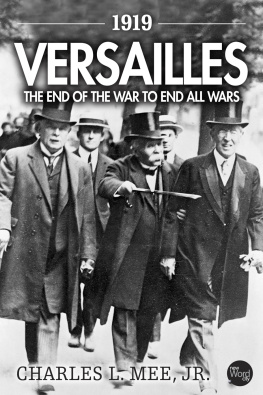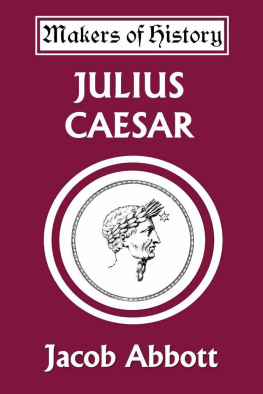


About the author
Peter Furtado is the former editor of History Today and in 2009 was awarded an honorary doctorate by Oxford Brookes University for his work promoting interest in history. His publications include Histories of Nations and 1001 Days That Shaped the World.
Other titles of interest published by
Thames & Hudson include:
Englands Forgotten Past
The Great Explorers
The Great Empires of Asia
See our websites
www.thamesandhudson.com
www.thamesandhudsonusa.com
CONTENTS


Some of the best historical quotations, like the best stories, improve in the telling. Martin Luther did not tell the Diet of Worms in 1521, Here I stand; I can do no other, but spoke much less pithily. Marie Antoinette did not say in 1789 Let them eat cake (these words in fact appear in an anecdote in the Confessions of Jean-Jacques Rousseau). It was a British tabloid headline writer, not the then prime minister James Callaghan, who came out with Crisis, What Crisis? during Britains winter of discontent of 19789. And the Chinese premier Zhou Enlai never suggested to the US secretary of state Henry Kissinger in 1972 that it was too early to tell what might be the impact of the French Revolution he was actually referring to Frances vnements of May 1968.
Misquotations, as much as true quotations, can act as what the biologist Richard Dawkins called memes heritable units of cultural memory encapsulating a hinterland of knowledge, each one competing for our attention. The capacity of quotation to bear this weight of meaning is, perhaps, just one good reason among several for a collection of excerpts describing or reflecting on notable events in the past, and placed in their historical context.
History Day by Day offers a genuine quotation from or about history for every day of the calendar year. Each quotation consists of words actually spoken on that day, or relating to events that took place on it. Some of the quotations refer to famous or notorious anniversaries 6 June, 1 July, 14 July, 11 September, to name but a few others to less immediately familiar but still significant events, from the ancient world to the twenty-first century.
History Day by Day includes some the most celebrated of all historical quotations, from Caesars cry of Alea iacta est! as he crossed the River Rubicon in 49 BC, to Marxs and Engels Workers of the world, unite! in The Communist Manifesto of 1848. But here I present these words in the larger context in which they were originally placed. The sound-bites of history may be memorable, but they become far more revealing when their preceding and succeeding paragraphs are also read, and when their historical context is fully understood.
As an anthology of original source materials some of them key documents, others the reports of eyewitnesses, or written shortly after the event History Day by Day offers a shortcut to the heart of history. Diary entries and memoirs, letters and interviews, bons mots and sound-bites, narratives and journalistic accounts, speeches and sermons, official reports and briefings; the entries selected are as wide-ranging in form as they are in geography and timescale. In some cases two disparate accounts throw contrasting light on the same happening. They are limited only by the need to pin the event or the quote to a specific date in the calendar.
It is important to add a health warning: not every entry in History Day by Day should be taken at face value. Some of the statements here are self-serving, others deluded. And some may be accurate as far as they go, but are still partial accounts that more recent historians have reassessed in the light of a fuller understanding of their historical context. Yet as the raw material of history they remain vital and fascinating. The great British scholar G.M. Young once advised young historians to Read until you can hear the people talking and it is my hope that the 366 extracts in History Day by Day provide a wealth of opportunities to do just that.
Peter Furtado
Oxford
August 2018

1 JANUARY
THE DEBUT OF THE TIMES, 1785
To the Public
To bring out a new paper in the present day, when so many others are already established and confirmed in the public opinion, is certainly an arduous undertaking; and no-one can be more fully aware of its difficulties than I am; I, nevertheless, entertain very sanguine hopes that the nature of the plan on which this paper will be conducted will ensure it a moderate share at least of public favour; but my pretensions to encouragement, however strong they may appear in my own eyes, must be tried before a tribunal not liable to be blinded by self-opinion; to that tribunal I shall now, as I am bound to do, submit these pretensions with deference, and the public will judge whether they are well or ill founded.
A paper that by steering clear of extremes, hit the happy medium, has long been expected by the public. Such, it is intended, shall be the UNIVERSAL REGISTER, the great objects of which will be to facilitate the commercial intercourse between the different parts of the community through the channel of advertisements, to record the principal occurrences of the times, and to abridge the account of debates during the sitting of Parliament.
EDITORIAL, DAILY UNIVERSAL REGISTER, 1 JANUARY 1785.

The former underwriter John Walter launched his newspaper, under the title Daily Universal Register, on the first day of 1785. Exactly three years later he renamed it The Times and broadened its appeal to include society gossip, something that landed him in Newgate Prison for two years after libelling the Prince of Wales. By the 19th century its independent viewpoint and innovative technology had made it the leading newspaper in Britain, campaigning for Parliamentary Reform before 1832, and for army reform during the Crimean War of 18546, a conflict that showcased the journalism of Times reporter W.H. Russell (see 25 October). The Times was nicknamed the Thunderer, originally a self-description (We thundered out the other day) after an editorial challenged the verdict of an inquest into the death of the peer Lord Graves in 1830.
ALSO ON THIS DAY

Next page
